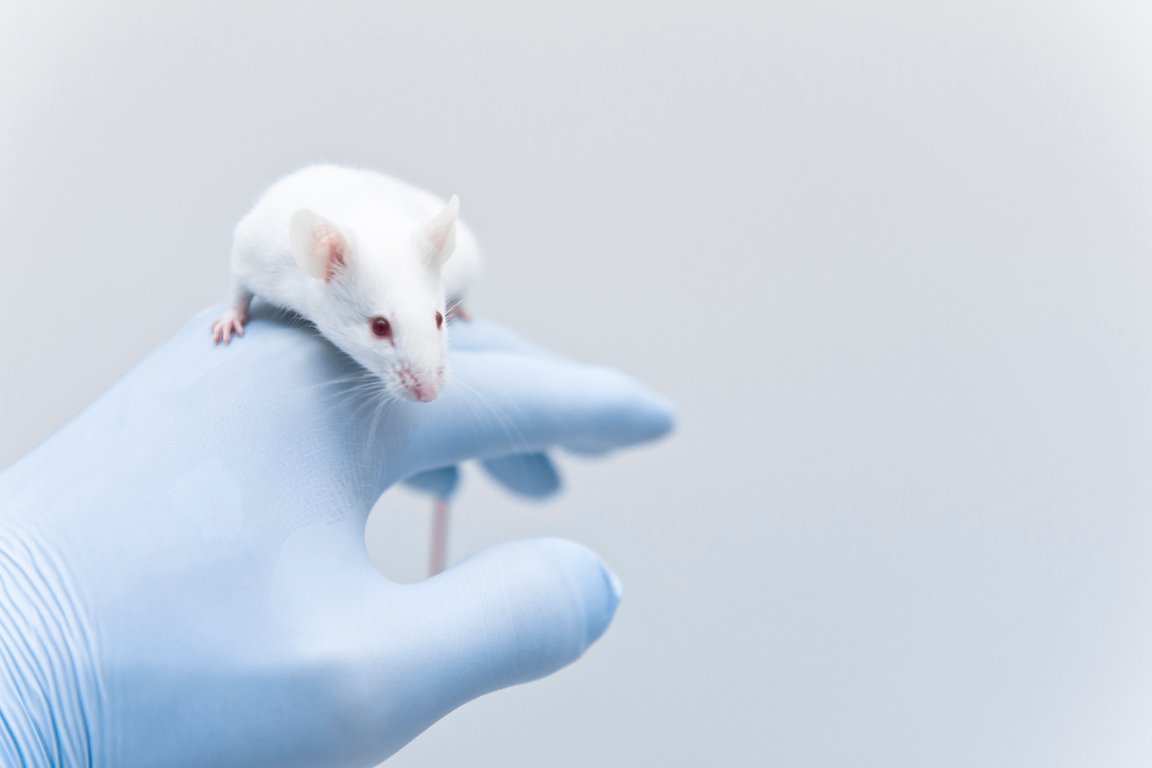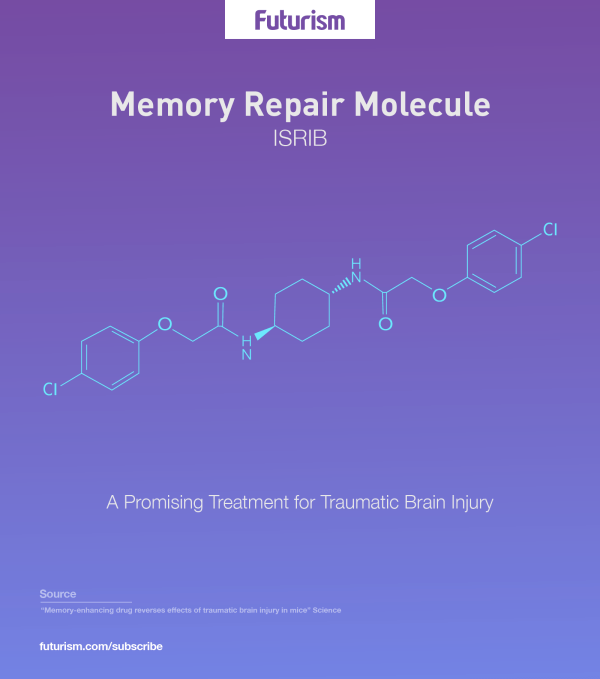
The Memory Repair Molecule
The human brain is among the the most sensitive organs in the body — at least in terms of how easily it can be damaged. Traumatic brain injury is usually irreparable, often resulting in cognitive decline and memory loss. To date, there’s no drug or therapy that can reverse this damage when it’s become permanent. Which is why the discovery of a potential treatment by researchers from the University of California, San Francisco (UCSF) is so compelling.
The key to their research is a compound called ISRIB, previously discovered in the lab of UCSF biochemist Peter Walter in 2013. Back then, it was found able to boost the memory of healthy mice. Teaming up with neuroscientist Susanna Rosi, they proceeded to test its effects in mice with brain injuries.
After testing it on two separate groups of mice (who had brain trauma induced under anesthesia) they found that ISRIB improved the performance of the injured mice in two mazes, one in the water and a tabletop version with 40 holes. In the first setup, the injured mice were given ISRIB three days in a row after having rested for four weeks. In the second one, the mice were given ISRIB for four days. In both cases, the mice who had been concussed performed poorly in the initial trials. But after receiving ISRIB, they performed just as well as their healthy counterparts.
“We kept replicating experiments, thinking maybe something went wrong,” Rosi told Science. “This is the most exciting piece of work I’ve ever done, no doubt.”

A Glimmer of Hope
The study, published in the journal of the Proceedings of the National Academy of Sciences (PNAS), “offers a glimmer of hope for our traumatic brain injury patients,” neuroscientist Carlos Borlongan from the University of South Florida in Tampa told Science. Borlongan reviewed the research and asserted that it could change motor function rehabilitation for brain trauma patients.
University of Pennsylvania neurologist Ramon Diaz-Arrastia supposed it could also help with cognitive improvement. “Normally you would give up on these mice and say nothing can be done here,” he said. “But ISRIB just magically brings the cognitive ability back.” However, these predictions need to be put to the test, as the research has only proven the effects in mice, not humans. It’s not uncommon for animal trials to fall short when replicated in human test subjects, but the researchers are hopeful.
Before any application could come to fruition, more research is needed to understand the process by which the drug restores memory. Even if no drug was developed, additional research about how ISRIB works would no doubt lend itself to the development of new treatments. There’s lots of work left to do, but if such treatments could give a second chance to over 150 people in the U.S. who die from traumatic brain injuries each day, or the millions around the world who have long term complications from them, it would definitely be worth a shot.